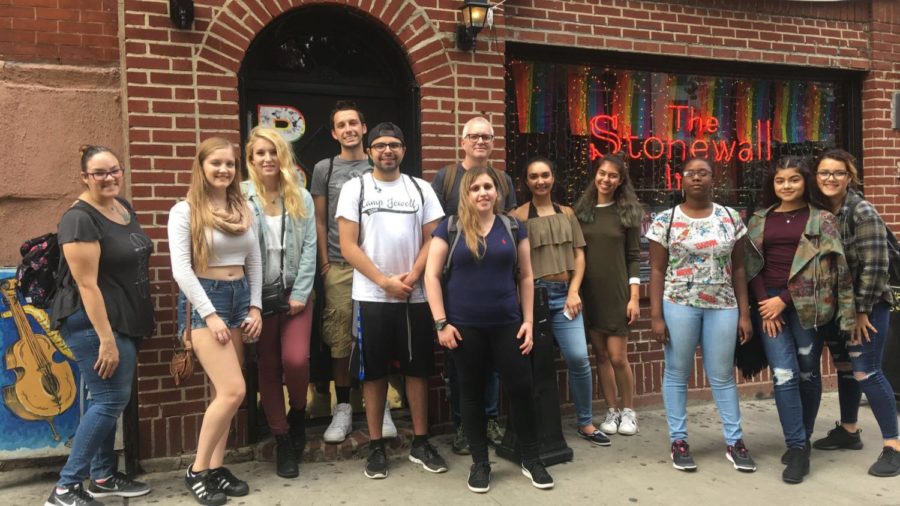NYC Justice Tour
Participants of the NYC Justice Tour
Students traveled back in time and saw the under-recognized parts of history on the streets of New York City during the NYC Justice Tour on Sunday hosted by Michael Finewood, faculty in residence of Elm Hall.
Students were given a tour of Seneca Village, the Highline Park, Stonewall Inn, and the Triangle Shirtwaist Factory because they are significant sights that have contributed tremendously to our history and to the increase of diversity in NYC.
“When people do things around this idea of diversity, they have experiences they wouldn’t have had before. They learn about other people, their histories, and why they care about certain things,” said Finewood.
The first stop during the tour was Seneca Village: a village founded by African Americans that was destroyed in the 1800s for the construction of Central Park. Students walked around the park and observed the change and looked for non-existent clues that the space was once a village.
“There’s so much history that has been overlooked. If you’re going to look at something, you have to stop and look deeper because maybe there’s more to its history,” said Andrew Cabrera, junior at Pace.
The second stop was the Highline Park, commonly known as a tourist attraction. Finewood explained that the park was originally created by locals when the neighborhood was unsafe and was home to the gay community, exclusively. However, the park made property value skyrocket and contributed to the gentrification of the community.
There were three important questions that Finewood asked students to keep in mind while they were observing each location and neighborhood: Who deserves to live here? Who belongs in these communities? Who has a right to this community?
“My immediate answer is the people who live there but it’s also not fair to restrict that space from other people because it’s a historical area that other people should get to enjoy,” said Kaila Williams, junior at Pace.
Students were then given a tour of the Stonewall Inn at Greenwich Village, the first gay bar in NYC that allowed dancing and were given a background on the Stonewall Riots that took place there. Currently the inn has several pride flags to commemorate the riots.
The final location was the Triangle Shirtwaist Factory: a factory without any policies placed to protect workers that led to the death of several women and a few men due to a fire. The space is currently owned and used by NYU.
“I can’t believe it took so long to place a plaque to show people that this happened here. It’s an important part of New York history,” said Cabrera.
Finewood plans on doing the NYC Justice Tour once a semester because students have shown significant interest in diversity and history.
“Pace is diverse. We should do things that represent the diversity of our students,” said Finewood.
Your donation supports independent, student-run journalism at Pace University. Support the Pace Chronicle to help cover publishing costs.


